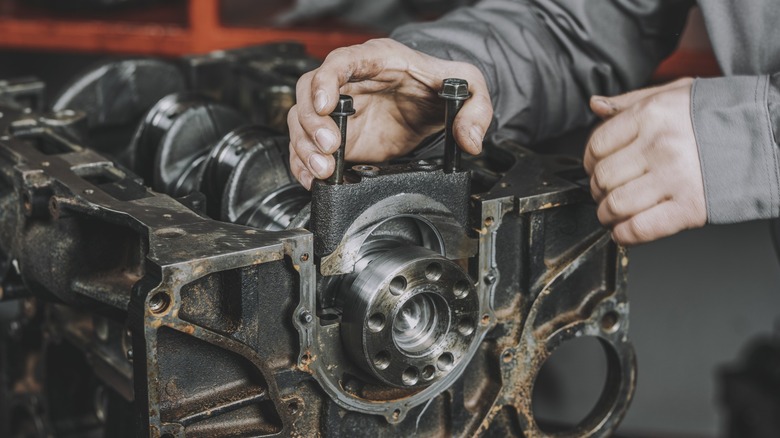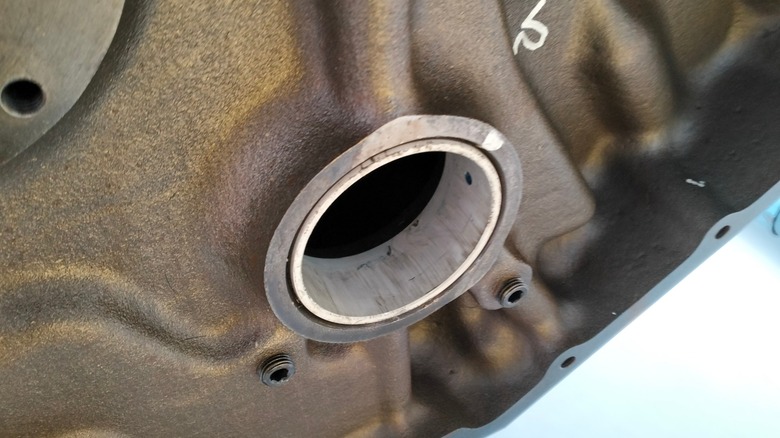What Are Engine Bearings And Can You Replace Them Yourself?
We may receive a commission on purchases made from links.
Your car's major engine components are likely made of various combinations of cast-iron, aluminum-alloys, and steel. Engine bearings are located in the deepest recesses of the engine block and rotating assembly. They contain a lining of babbitt metal to reduce the friction generated by rotating engine parts.
Main bearings are located between the crankshaft main journals and the engine block and mating main bearing caps. Each two-piece bearing forms a circle around the crankshaft, with one half held in the engine block and the other secured in the main cap. The bolts securing the cap to the block are carefully torqued to provide uniform pressure across the cap.
Rod bearings go between the piston connecting rods and crankshaft rod journals in much the same way. However, camshaft bearings can be a little different. While camshaft bearings for overhead cam engines are similar to rod and main bearings, engines with a centrally located cam use circular bearings that are pressed into bores in the engine block to support the camshaft.
The required clearance between the bearing and crankshaft depends on the application's specifications, but generally falls between 0.00075 and 0.001 inch per inch of shaft diameter (0.0015 to 0.002 inches for a 2.00-inch diameter crankshaft journal). This clearance provides space for pressurized engine oil to separate the shaft from the bearings. Measuring the inner diameter of the assembled bearing requires precision measuring tools or Plastigage, available at Amazon for $36.88.
Is replacing engine bearings a DIY project?
While changing your vehicle's engine bearings won't make many DIY Engine Maintenance Tasks You Can Do At Home lists, they do wear out and eventually need to be replaced. Unfortunately, once you hear the tell-tale knocking sound from deep within your engine, the damage is already done and an engine rebuild or overhaul is in your car's future.
Taking your car to a repair shop for bearing replacement will likely result in an attempt to sell you a remanufactured engine. That option is worth considering if you can afford it and plan to keep the car for the foreseeable future. A quality remanufactured engine is as good as new, has a factory warranty, and allows you to be back on the road in just a few days.
On the other hand, if the only thing amiss with your engine is the bearings, simply changing them is the least expensive route when considering costs other than labor. For instance, a set of small block Chevy main bearings from Summit Racing Equipment sells for $19.99, a set of rod bearings for the same engine are priced at $33.99, and camshaft bearings are $28.79.
You'll need some equipment to make your engine rebuild easier, safer, and better, but renting or buying specialized tools won't push the cost of replacing your bearings near that of a new engine. The downside to replacing your engine bearings yourself is the time investment and the potential of getting something wrong if you lack experience.

